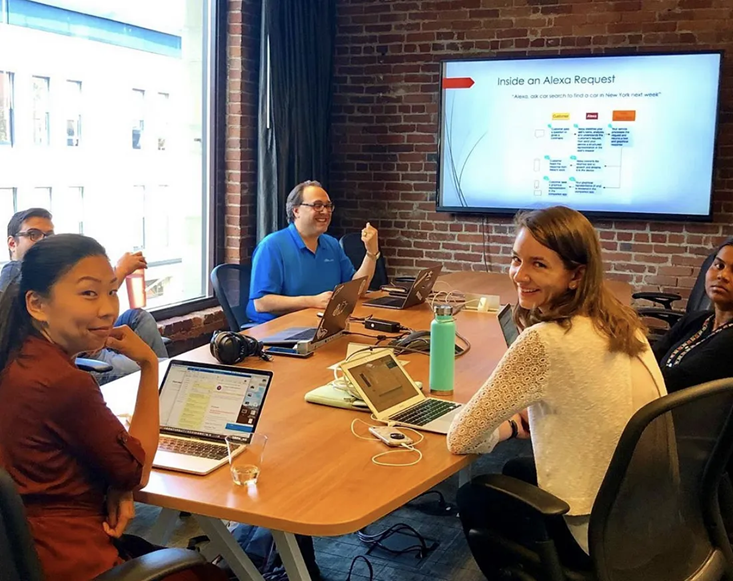Teach What You Know to Learn It Better
What I learned by leading an Alexa-development workshop
December 4, 2019

I’ve been building Alexa skills for the past few years, with over a dozen published skills in the Amazon Alexa store.
I’m a lifelong learner and first got involved with Alexa three years ago. It was a great way to learn a new programming language and play with emerging technology. And this love of learning has kept me involved as new voice features and patterns have emerged. A few months ago, I decided to share this passion by hosting an in-person course. I partnered with a local Seattle company, Mindspand, to list and promote it.
It can be intimidating putting on a workshop. There are plenty of free professional articles, tutorials, and videos available. Why should someone pay to learn from me in person?
What I kept reminding myself was I wanted to do something different to share my knowledge. There are many different ways that people learn. I learn through a combination of self-exploration and small in-person sessions. This lets me try things hands-on with someone who’s been through it themselves. It was this element I wanted to bring into my workshop — and that I felt I could teach in my own authentic style.
It was a lot of fun putting on this course. The class had a small-group setting to give people 1:1 attention. The loose presentation style allowed me to make it an interactive environment. I used a series of exercises to take people from a “Hello, World!” application to a full rental-car search skill. Along the way, I demonstrated some nuances I’d worked through and shared tools I’d used, like Jargon, to simplify content management.
One thing that surprised me was how much people helped each other during the session. There was a variety of skill levels in the audience. I had tailored the lessons for beginners but included some exercises to challenge more veteran developers. The small, let’s-focus-on-learning environment helped bring about that collaborative learning.

Whatever your passion, teaching others can be not only be satisfying but be a way to learn more yourself. I got several questions about features or nuances that I’d long since worked around. But when asked from a fresh perspective, it forced me to investigate to explain why something was the way it was. In at least one case, I found a new solution as a result.
Seeing the questions students asked helped me refine the course for the next group. Last month, I modified this workshop for a business-focused hackathon at the University of Washington. Even when teaching, it’s a continuous learning process.
So what’s your passion? And what’s stopping you from sharing with others? It’s a rewarding way to teach others something you love, while giving you deeper insight and understanding.